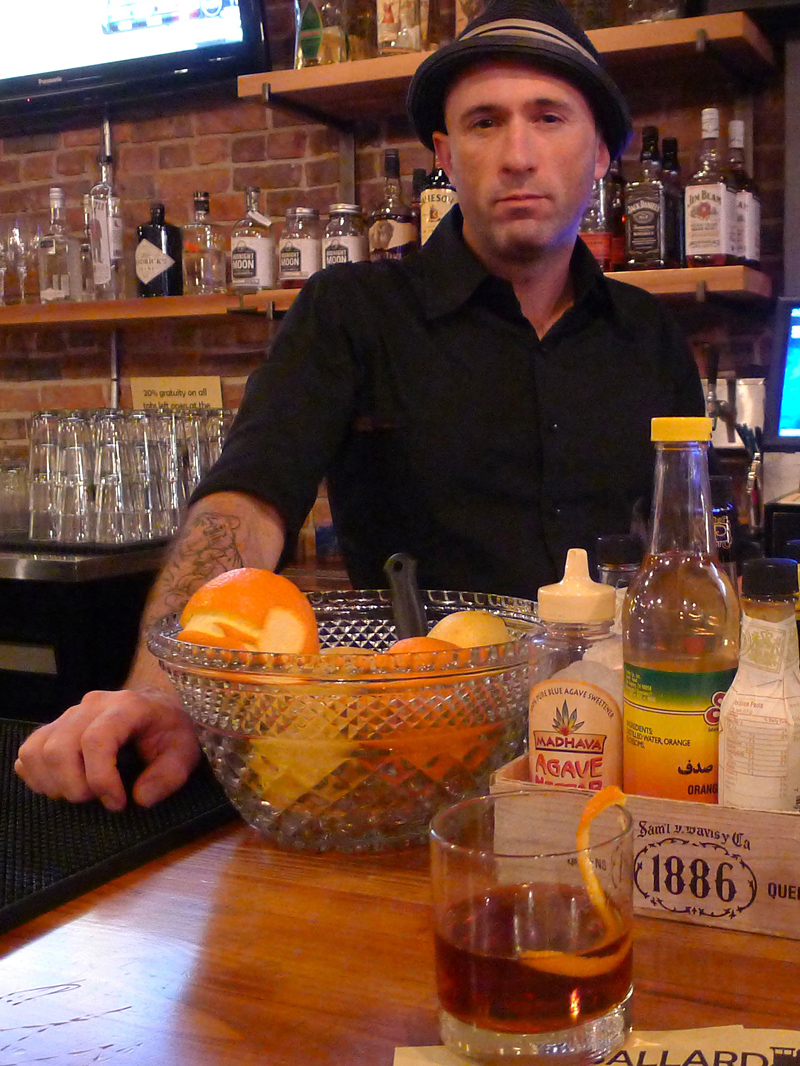On April 29, Ivan Pearce and his wife Adrianne mailed a letter that they thought would give them a crucial leg up in the competitive world of medical marijuana. Instead, that letter has now left them exposed to, at best, a few disapproving looks from neighbors, and at worst, a visit from unwanted guests wielding guns and badges, or possibly just guns.
The Pearces put their letter in the mail a week after the state legislature approved SB 5073, a bill that would have made dispensaries legal and charged the Washington Department of Health with creating a confidential registry of marijuana patients and providers. Like dozens of other budding entrepreneurs, the Pearces saw the bill’s passage as a moment of opportunity.
Ivan, who is authorized to use medical marijuana because of a debilitating back injury he suffered in a car accident, says he and his wife spent several hundred dollars scouting locations for their dispensary and paying fees to register their new business with the Washington Secretary of State. They were excited about the prospect of opening a dispensary near their home in rural Moses Lake, where safe access to quality medical pot can be hard to come by.
“We planned on making it a 100-percent-legitimate business,” says Pearce, “only helping those that needed to be helped.”
Then came Gov. Christine Gregoire. A week after SB 5073’s passage, Gregoire used her veto power to axe much of what made the bill so attractive to the Pearces, including the amendment that created the confidential registry. Intended only for the eyes of those at the DOH and members of law enforcement, their letter was now trapped in a kind of political purgatory.
Because the DOH had yet to establish the registry, in the week between the bill’s passage and Gregoire’s gutting, the 71 letters from would-be dispensary owners like the Pearces simply ended up in a folder in someone’s office, according to agency spokesman Donn Moyer. “There never was anything for us to do with those letters,” he tells Seattle Weekly.
Now that the registry is no more, those letters that were supposed to be private are a matter of public record—a fact that doesn’t sit well with the Pearces, or activist Steve Sarich.
Sarich, whom we profiled last year (“Bad Seed,” May 26), knows firsthand the dangers involved in running a dispensary: Last March, he shot two men (critically wounding one) who had broken into his Kirkland home in an effort, he says, to get to his stash. Sarich says he didn’t send a letter himself for fear of this exact scenario. “This is why we’ll never trust the state on issues of confidentiality,” he says. “They kind of make up their own rules. We have not had very good treatment from the Department of Health. As long as they’ve been involved with medical marijuana, they’ve very often made decisions behind closed doors.”
Sarich is concerned that the now-public documents could be used for the nefarious purposes that led to his shootout. “Certainly a lot of marijuana growers have been robbed,” he says. “If I’m a bad guy, I now have quite a list of addresses where people are growing medical marijuana.”
Shane Silverthorn, an attorney in Port Orchard who represents more than a dozen people who sent letters of intent to the DOH, says that, unlike Pearce, some of his clients didn’t even plan to grow weed themselves. He says that they were under the impression that the state would only authorize a finite number of dispensaries. Several of his clients just wanted to be first in line.
“There were multiple interpretations as to what was required,” Silverthorn says. “It was clear the licenses would be limited, and so people had to act. You could just plan to buy a license. The license itself could be valuable whether you did anything with it or not.”
Unfortunately for Silverthorn’s clients, now the only thing of value are those letters. And they’re valuable to people who, as Sarich knows, can be dangerous.
But in eastern Washington, Pearce and others fear cops as much as crooks. Pearce used to legally replenish his pot supply in Spokane, before a recent spate of local-law-enforcement-assisted DEA busts shut down most of the city’s dispensaries.
“I’m not doing anything, they can come look, but there’s no businesses like that here,” he says of his aborted pot-peddling endeavor. “That’s something I wanted to do. And if the state would ever, excuse the expression, pull their head out their ass, of course I would like to do it again.”







